Faced with an increasingly critical citizenry, the government has slapped new taxes on social media platforms such as WhatsApp, Facebook, Twitter, Skype and Viber to stop what the President has called lugambo (gossip).
The President also targets commercial buildings to boost government revenue from the Shs50b the taxman collects from landlords annually.
The President criticised the ‘concealment’ of taxes in housing sector as ‘scandalous’ and asked Mr Kasaija and his team at Finance ministry to get serious.
The new tax proposals castigated by social media users, including human rights defenders and Opposition leaders as “diversionary, deceptive, injurious to individual freedoms and burdensome” have been confirmed by Mr Kasaija, the Secretary to Treasury, Mr Keith Muhakanizi, and State House officials.
The proposed tax measures that seek to help Mr Museveni’s government raise between Shs400 billion and Shs1.4 trillion from social media users annually, were ordered by the President in a March 12 letter to Finance minister Matia Kasaija.
“I am not going to propose a tax on internet use for educational, research or reference purposes... these must remain free. However, olugambo on social media (opinions, prejudices, insults, friendly chats) and advertisements by Google and I do not know who else must pay tax because we need resources to cope with the consequences of their lugambo,” Mr Museveni wrote.
Plan
The President, however, did not explain how lugambo has affected resource mobilisation.
And on the issue of the so-called “over-the-top” platforms (OTTs) such as WhatsApp, Skype Viber, Twitter, etc, Mr Museveni wrote: “If we were to introduce a small fee of Uganda Shs100 per day from sim-cards that are used by these OTTs, that would generate about Shs400 billion additional revenue.”
He further explained that this estimate is on the basis of the minutes used by Ugandans over OTT and that this does not include undeclared calls and data by the telephone companies.
“These could be in the magnitude of $400m per year. This is all to do with airtime excise duty and tax on voice over OTT and phones (mobiles and fixed),” he added.
Mr Kasaija, who the President scolded for “lack of seriousness” in identifying tax sources and collecting more taxes for the country, also confirmed the disputed taxes measures.
Mr Kasaija however, explained that the directives in the President’s letter are “a Cabinet directive” and that the details will be contained in the new tax bills to Parliament.
In trying to widen the tax base in the 2018/19 budget, Mr Museveni has proposed new taxes on telephones data transmission and the housing sector which he says generates rented incomes but are not adequately taxed. The details will be contained in the new tax bills.
Delving into the details of the new tax proposals, the President added: “The big losses on telephones are in three areas: not collecting excise duty on airtime and only collecting VAT, missing many calls because you depend on false declarations by telephone companies and not taxing voice conversations and other non-educational communications over the internet (via social media, whatsApp, face book etc). Why not put excise duty on (internet) air time?”
Telecom companies have reacted with consternation, rejected the tax proposals as uncalled for and grumble about “double taxation”, a taxation principle that refers to income taxes paid twice on the same source of earned income.
The MTN general manager of corporate service, Mr Anthony Katamba, denied claims that telecom companies falsify declarations.
He told Sunday Monitor that imposing excise duty on social media is taxing content.
“The data you buy gives you internet. So taxing social media is a taxing content,” Mr Katamba said, adding that if government goes ahead to implement the proposed tax, “it would be unprecedented.”
On taxation, Mr Katamba said: “URA assess us for tax based on the minutes used, you cannot hide that. If you chose to under declare, how do you gain by hiding the minutes? It’s not possible because MTN has to bill another entity for the minutes.”
Citing calls from Britain where MTN has to bill the British Telecom, Mr Katamba asked, “If I under declare, then how will MTN get its money from British Telecom.”
However, a senior official from Uganda Telecom, who requested not to be named because he or she is not authorised to speak to journalists, backed the President ideas and accused URA and Ministry of Finance officials of sleeping on the job when most Uganda are busy making free calls off social media platforms such as Viber, Facebook and WhatsApp etc.
According to this official, URA has allowed telecom companies to take home a wider profit margin, denying government the billions of shillings needed to finance the budget.
Taxes on Telecom companies
In asking URA to widen its tax base, UTL sources indicated that URA charges excise duty and VAT on voice calls yet the trend has changed, people are using airtime more for data than voice calls.
Data from URA show that telecoms pay 18 per cent VAT and 12 per cent excise duty on airtime for voice calls but only VAT on data yet mobile phone subscribers use more of data than voice.
The telecoms also pay corporate tax which is determined from the net earnings and 2 per cent on gross earning to the regulator- the Uganda Communications Commission (UCC). However, both VAT and excise duty are passed on to the consumers.
In lecturing government economists at Finance ministry on the principles of taxation, the President Museveni, who is a student of economics and political science, invoked the equivalence of a shirt manufacturing plant to justify the need to tax airtime for internet access and widen the tax base, something his critics say has eluded his government for 32 years.
“When you manufacture a shirt you pay excise duty at the factory level. When the shirt is, eventually, sold, it also pays VAT, paid by the consumer. Whether the shirt is bought or not, it will have paid the excise duty. Are your officials aware of these principles of taxation?” he asked Mr Kasaija again.
Mr Muhakanizi told Sunday Monitor that Mr Kasaija will table the new tax measures contained in Parliament on Tuesday even as some lawmakers such as Mr Nandala Mafabi (Budadiri West) vowed to block what they ridiculed as “WhatsApp tax”.
Complaint
Some MPs, economists and independent experts in the ICT sector have accused the President of ‘deepening the tax base’ as opposed to widening it, a move they say would balance the books on the backs of the poor.
Mr Venansius Baryamureeba, the Vice Chancellor of Uganda Technology and Management University and a former dean of Makerere University Faculty of Computing and IT, asked the President to drop the proposed tax measures in public interest, and instead cut taxes on smartphones and make internet affordable to ease access to information.
Mr Julius Mukunda, the executive director of Civil Society Budget Advocacy Group (CSBAG) explained: “From the point of view of pro-poor and progressive taxation, If you charge Shs100 per day then everybody will pay but when you charge say 1 per cent, it will be proportionally a way of expanding the tax base because it will only be paid by the rich.”
He added: “We can have the tax but how will it be collected, we rely on telecom companies to collect tax. So we need to put in place an infrastructure to help government to collect this tax. Currently nobody knows how much money we collect from telecom companies.”
MPs call for focus on fighting corruption
In choosing new taxes against increased borrowing, the Finance minister, according to sources, will tell Parliament next week how Cabinet took the decision to widen the tax base in order to finance government projects because further borrowing from the domestic market will lead to un-sustainability of our debt and may destabilise our macro-economy.
Instead of taxing Facebook and WhatsApp, some of the MPs on the ICT and the Budget Committees of Parliament asked the President and Mr Kasaija to focus on the fight against corruption and other forms of financial indiscipline in government in order to save the funds needed for service delivery.
The MPs have cited a 2016 survey by the procurement authority that revealed the raging plunder of public resources through inflated procurement deals and ranks key spenders such as Education and Defence ministries among the worst thieving government agencies.
The “performance results and corruption perceptions in public procurement” survey carried out by the Public Procurement and Disposal of Public Assets Authority (PPDA) blames corruption in procurement on “political meddling in the procurement processes”, impunity and a decadent culture that adores wealth accumulation. In 2005, the World Bank estimated that Uganda loses more than $300 million through corruption and procurement malpractices every year.
Response to proposed tax
Keith Muhakanizi, Secretary to Treasury: “Taxing airtime needed a law and we have put that into a proposal that will go to Parliament on Tuesday. If Parliament allows the taxation of social platforms then the law will come into effect starting July this year.”
Amos Lugolobi, chairperson of Budget Committee of Parliament: “The proposal to tax social media is a wise move if government is to sustain its revenue collection. The world is changing from analogue to digital, including the media, there are people accessing the Daily Monitor on social media. So Government also needs to follow this shift if it’s to realise revenue. Government needs to balance between collecting revenue and access to information and keep the rate low. The best way to widen the tax base would be to increase the manufacturing sector which is very low compared to GDP ratio. With that there would be many manufacturers who consume electricity and water and pay other forms of taxes that would increase the tax base. URA lacks the capacity to reach all taxable areas up-country that a man who sales his 100 cows cannot be reached to collect tax that needs to be addressed by having regional offices.”
Anthony Katamba, MTN general manager of corporate services:
“Imposing excise duty on social media is taxing content. The data you buy gives you internet. Taxing social media is a tax on content. If the government goes ahead to implement the tax, it would be unprecedented. Saying that we under declare our calls is not true. URA assesses us for tax based on the minutes used. You cannot hide that. If you chose to under declare, again, how do you do it? It’s not possible because MTN has to bill another entity for those minutes. For calls from Britain, for instance, MTN has to bill a British telecom. So if we under declare then how will MTN get its money from British Telecom?”
Livingstone Ssewanyana, Foundation for Human Rights Initiative (FHRI) executive director: “Widening the tax base is not bad but government needs to be mindful of access to information. What the President is proposing, taxing people spreading lugambo, is an attempt to undermine individual freedoms. The tax will not only hurt those who criticise government, but even innocent people. That tax aims to exploit local people. It’s diversionary, deceptive and burdensome to the people. People are already paying VAT, PAYE, Property Tax and are complaining. So it’s not reasonable to continue to overburden the tax payer with a tax on social media. Government collects a lot of money already, what it needs to deal with is corruption.”
Dr Ezra Suruma, Makerere University chancellor (former Finance minister): “Taxation is a complex subject. I need to know the intention of the new proposals and how the tax on data would be implemented to be able to comment with authority. But we pay tax when buying phones and airtime and taxing data would be an extension of tax on communication.”
editorial@ug.nationmedia.com
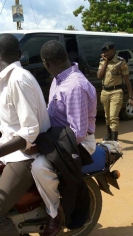

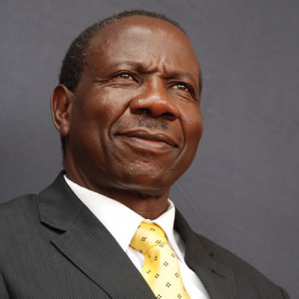


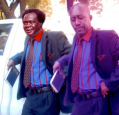
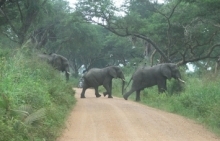
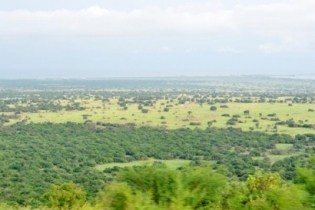

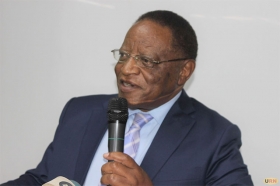
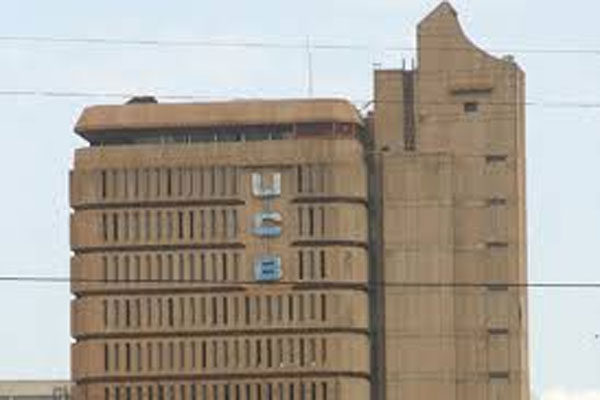 The old empty building of the Uganda Commercial Bank that was sold off by the current government of President Museveni.
The old empty building of the Uganda Commercial Bank that was sold off by the current government of President Museveni.

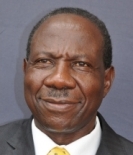
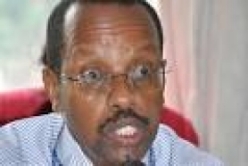
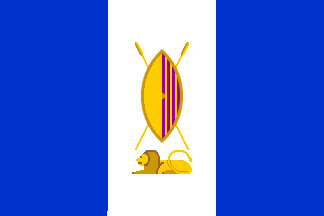
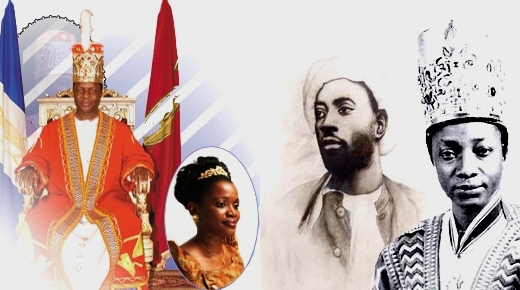





That is why it seems it is the habit of putting up impossible targets of revenue collection for itself. While on the other side, the tax payer is not at all convinced.
Any responsible tax payer wants to pay his tax responsibilities with the hope that public service in this country will improve greatly not only for his or her business to flourish but for the other foreign competitors to do the same.
There are clearly very many foreign rich companies that are exonerated from paying a single shilling in tax to this country.